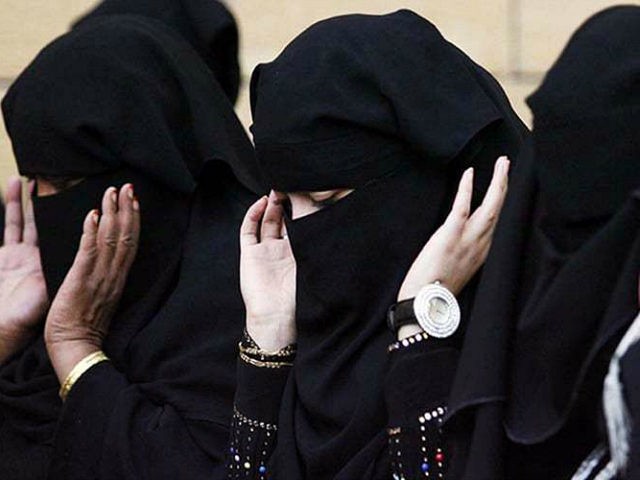The government of Saudi Arabia has confirmed that ten Saudi nationals — three sisters and their seven children — were intercepted in Lebanon on the way to join the Islamic State in Syria.
The women, who have not been identified by name, were placed on law enforcement radar by one of their husbands, who reportedly told Saudi police that she had left him with their children with the intent of joining the jihadist group. The man who tipped off police was the father of three of the children and referred to his wife as a “takfiri,” or Sunni jihadist, according to Reuters.
“The security communications unit (990) received a communication from a citizen stating that his wife left the Kingdom along with three of their children, aged between 10 and two years, and accompanied by two of her sisters, one of them has four children, aged between six and one years, so as to join the conflict areas because they have takfiri thought,” a Saudi government spokesman said in a statement.
The group, despite not being accompanied by a man, managed to reach Beirut before being intercepted; they have now been returned to Saudi Arabia. The Times of Israel notes that their travel raises some questions, as Saudi women are not allowed to leave the house without a male family member, much less cross the border out of the country. Saudi women are not allowed to drive and have minimal custody rights over the children compared to fathers.
Saudi Arabia has a rich history of jihadi sympathizers joining terrorist groups; Osama bin Laden, the late head of ISIS mother group al-Qaeda, was a Saudi national. Reports indicate that Saudi Arabia is the second-largest contributor of jihadis to the Islamic State in Iraq and Syria, Reuters notes; the only country with more citizens participating in the jihad is Russia.
Despite this, the Islamic State has made clear it considers the Saudi leadership an enemy of their cause, as Abu Bakr al-Baghdadi is considered the only legitimate Islamic leader in the world and ISIS supporters believe he should be govern the religion’s holy spaces in Mecca and Medina. Thus, despite being an Islamic kingdom run under strict sharia law, Saudi Arabia has been the target of Islamic State attacks.
Saudi Arabia spends most of its efforts combatting its Shiite rivals, not investing in the fight against Sunni jihadism. It is particularly embroiled in fighting the Houthi rebels in Yemen, who are backed by regional rival Iran. Saudi Arabia’s involvement in Yemen is controversial, making a recent decision by the United States to sell $1.15 billion in military equipment to Riyadh particularly notable. Saudi Arabia is nominally an ally in the war on the Islamic State in the Middle East.
The family arrest highlights the successful propaganda the Islamic State has released in the past two years advertising life in the caliphate for women and children. ISIS publications routinely argue that life for Muslim women under sharia law is preferable to freedom in the West. In the latest issue of its English-language magazine Dabiq, an ISIS author argued that “bestiality,” “feminism,” and other evils were threatening the sanctity of womanhood, and the only proper place for a righteous woman was beside a jihad procreating for the caliphate. Willing Muslim female recruits are seen as superior to the women forced into sex slavery throughout the region after their towns are raided and destroyed by the Islamic State and are sometimes even permitted to engage in combat, though this has happened on rare occasions in places where ISIS has a less formidable stronghold, such as Libya.

COMMENTS
Please let us know if you're having issues with commenting.